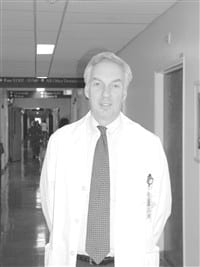The Benefits of a Higher Cigarette Tax
Each year, as the Legislature sets the state budget, members are confronted with making tough and balanced choices while remaining steadfast to sound public policy. Nowhere is that more evident than in the state’s commitment to ensuring the success of its landmark health care reform law, an initiative that is providing insurance to the uninsured but carries with it a price tag of nearly $400 million in fiscal year 2009.
Now is not the time to backtrack on the law, a national model that other states are working to emulate. A basic component to this success is in its inclusion of prevention measures that seek to improve the overall public health — today and down the road.
Cigarette smoking is the leading cause of preventable death and disease in Massachusetts. Twenty-five people die each day in the state from tobacco-related illnesses, and thousands of others suffer from related ailments — emphysema, heart disease, cancer — many unable to work or enjoy quality of life. Its wrath results in great personal, physical, societal, and fiscal cost. To combat this reality requires a multi-faceted and fiscally responsible approach, one that brings in needed revenue while adding immeasurable benefits toward prevention and cessation of smoking.
Currently, there is a legislative proposal that would add $1 to the levy on cigarettes. Its passage would add about $150 million to state coffers, which would enable the Legislature to continue health care reform, as well as reduce the incidence of smoking rates overall. Data shows that for every 10{06cf2b9696b159f874511d23dbc893eb1ac83014175ed30550cfff22781411e5} increase in the cost of a pack of cigarettes, the overall smoking rates decrease 4{06cf2b9696b159f874511d23dbc893eb1ac83014175ed30550cfff22781411e5}.
Perhaps more compelling, raising the price of smoking will discourage children, who are still the tobacco companies’ main target, from picking up the habit in the first place. That will lower future health care costs and help break the cycle of addiction. A leading study shows that nearly every adult who smokes (almost 90{06cf2b9696b159f874511d23dbc893eb1ac83014175ed30550cfff22781411e5}) took his or her first puff at or before age 18. If passed, this legislation would translate into 46,000 fewer future kid smokers coupled with 25,000 fewer adult smokers.
Every year, Massachusetts spends more than $3.5 billion to treat sick smokers. These are critical dollars that could be spent on other health priorities, prevention programs, or other important needs in our state.
Critics of the increase say that it will push sales to states that tax less. They also say it is a regressive tax that will dwindle over time. Neither is true. Convenience stores in border towns noticed a slight dip in business after past increases, but, over time, found that buyers returned. This makes sense since cigarettes, like gum, candy, and soda, are typically purchases of convenience.
And other states, most notably Michigan and Alaska, have found that even with an increase in the cigarette tax, their revenues have steadily increased, not decreased.
But raising the tobacco tax saves money here, too. The child with asthma whose parent stops smoking today will have fewer asthma-related complications from second-hand smoke tomorrow. An expectant mother encouraged to kick the habit by higher prices will give birth to a healthier baby. The teenager who doesn’t start smoking becomes the adult with fewer chances of getting lung cancer, emphysema, or chronic heart disease.
And from a strict fiscal analysis, it would save the state more than $1 billion in long-term healthcare costs.
So an increase in the tobacco levy simply makes sense. It deters children from smoking. It helps taxpayers, health care providers, hospitals, and insurance ratepayers. And it extends a helping hand to those hard-pressed families and individuals who are working but lack health insurance.-
State Rep. Rachel Kaprielian, D-Watertown, is lead sponsor of the legislation; Rev. Herman Hamilton is president of the Greater Boston Interfaith Organization and pastor of Roxbury Presbyterian Church.


Comments are closed.